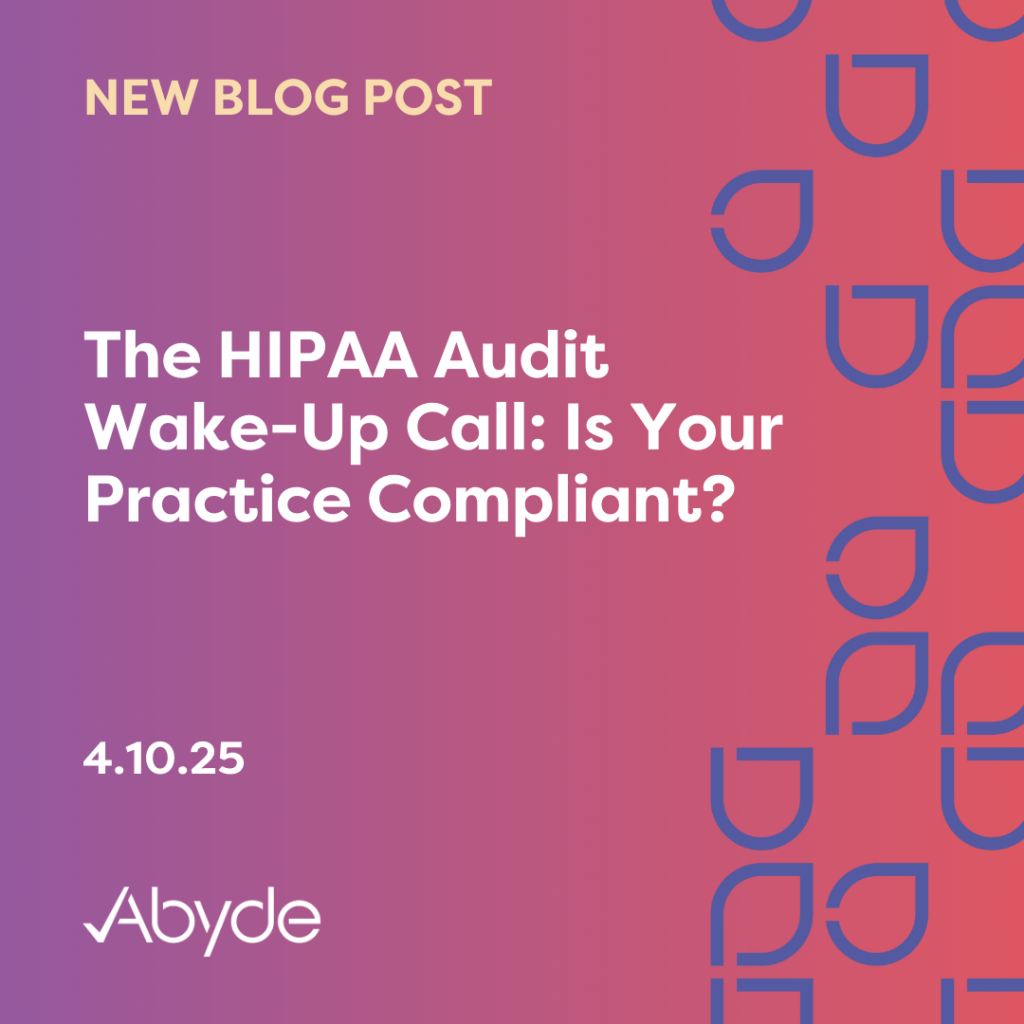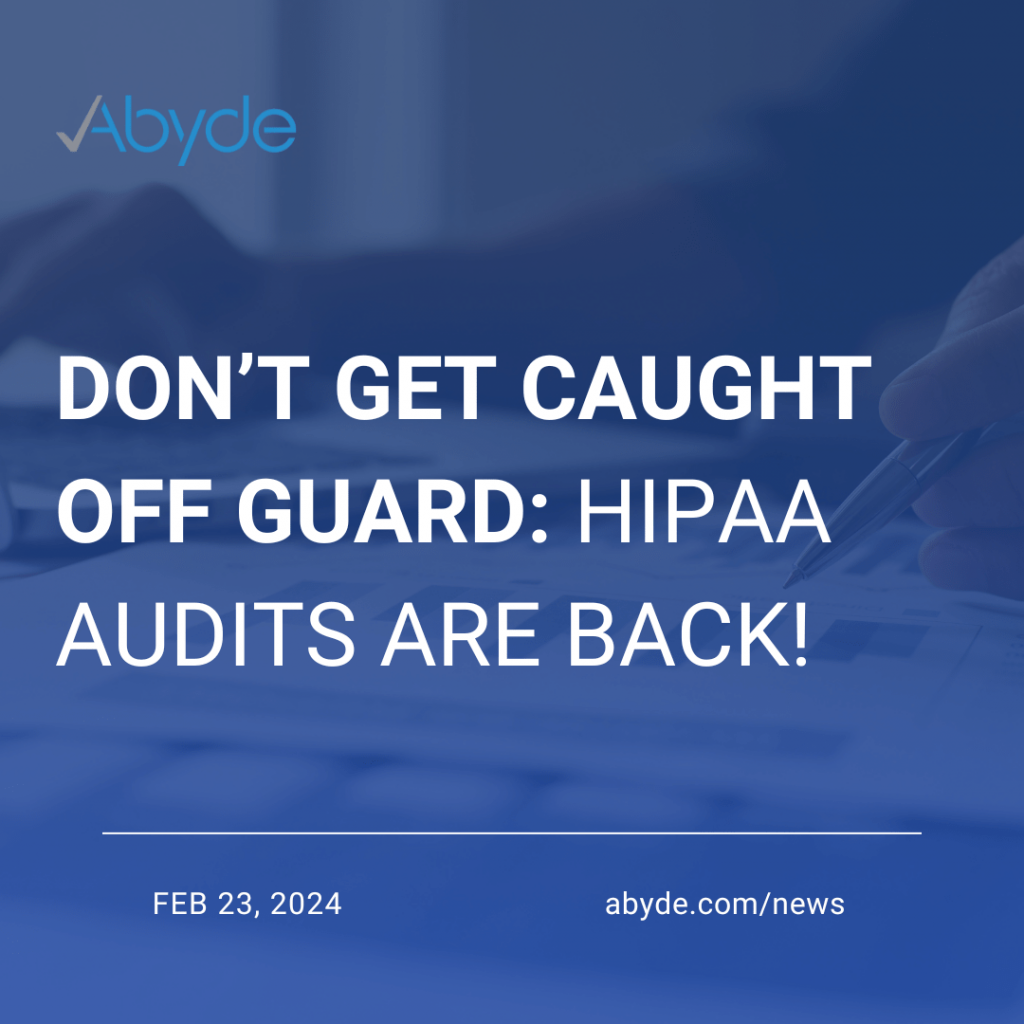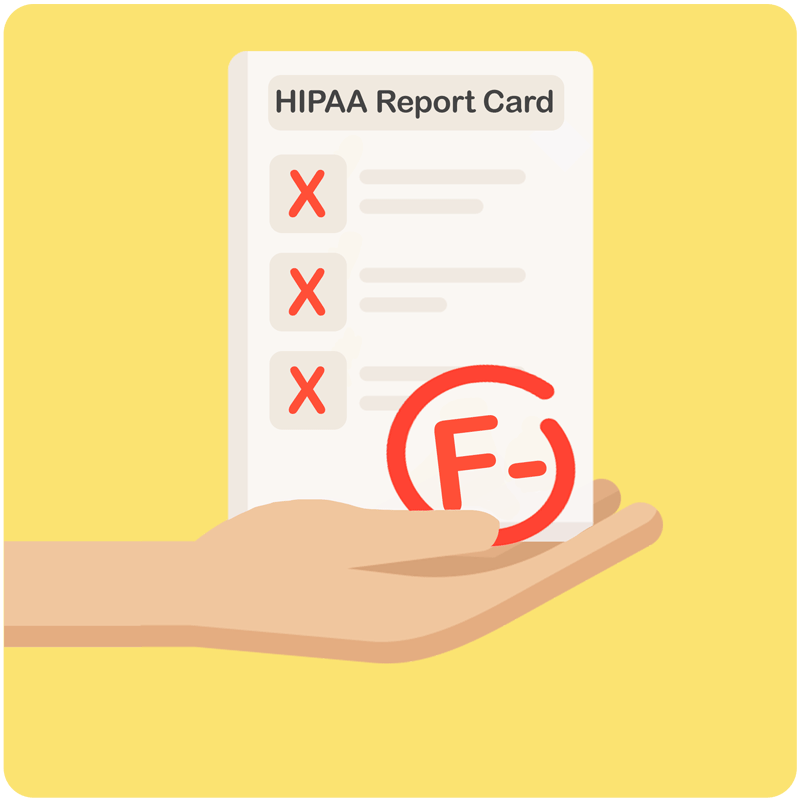April 10, 2025 The HIPAA Audit program is back in business. Since the introduction of the Health Information Technology for Economic and Clinical Health (HITECH) Act, the Office for Civil Rights (OCR) has been able to audit practices, ensuring they follow HIPAA standards. While the revival of the audit program was announced last May, new information was confirmed at the latest HIPAA Summit, with 50 Covered Entities and Business Associates being selected to be audited. This program was last active from 2016-2017, which highlighted that, unfortunately, noncompliance with HIPAA is far too common in regulated entities. In fact, only 14% of Covered Entities, like medical practices, could produce a compliant Security Risk Analysis (SRA). The healthcare industry is entering a new era of HIPAA compliance in the wake of the largest ever healthcare data breach. New HIPAA legislation is being reviewed and the Office of the Inspector General (OIG) is recommending stricter audit processes. With millions in fines already imposed in 2025, proactive preparation is now critical for healthcare providers and their business partners. What is the Audit Program? The audit program was first introduced when the HITECH Act was enacted in 2009. While the majority of the investigations the OCR conducts are reactive, resulting after a patient complaint or a breach, the audit program is random. The OCR will thoroughly review the selected organization’s documentation and current processes as the audit program resumes. A compliant HIPAA program entails much more than training; it also requires comprehensive, continuous protocols to ensure patient data is being protected. The basis of a compliant practice is being able to present an SRA. As stated earlier, previous audit programs spotlighted the shortcomings of regulated entities completing this. The SRA is a thorough assessment of your practice. This includes reviewing the safeguards your practice currently has in place. Technical, physical, and administrative safeguards all play a role in securing Protected Health Information (PHI). This would include a deep dive into the technology your practice uses, the physical protections your practice might have (like alarms), and the administrative policies your practice follows. Completing this analysis will allow your practice to identify vulnerabilities before a breach occurs. Proactive compliance, addressing issues before they affect patients, is key to a successful practice. In addition to providing an SRA, practices must also prove compliance with other pillars of HIPAA compliance, such as the Right of Access (or sending requested medical records to practices in a timely manner), the Breach Notification Rule, the Privacy Rule, and more. After the rise in ransomware attacks in recent years, with a nearly 300% increase in ransomware-related breaches, regulated entities’ cybersecurity practices will likely be scrutinized, ensuring that those audited are aware of their technology responsibilities. What can I do? Your practice must be aware of HIPAA and implement the appropriate safeguards to be prepared for the possibility of an audit. While this can be a daunting task, it is imperative for your practice to follow HIPAA compliance before a situation occurs. Thankfully, smart software can streamline and simplify HIPAA for your practice, providing a roadmap to compliance. With the right solution, your practice can see exactly what the OCR requires, which will be asked for if ever audited. To learn more about becoming audit-ready, schedule an educational consultation with our team of experts.
Don’t Get Caught Off Guard: HIPAA Audits are Back!
February 23, 2024 They’re Baaaaaack! And in this case, not the poltergeists in the 80s classic, but the Office For Civil Rights (OCR). The OCR shared some significant news, announcing their plans to reintroduce their random HIPAA audits program. The last time this program was in place was in 2016 – 2017, with over 200 Covered Entities and Business Associates audited to ensure HIPAA compliance. Before this program is officially implemented again, the OCR is surveying past audit participants, and hearing their feedback before random audits begin. However, Director of the OCR, Melanie Fontes Rainer, confirmed the audits would resume this year, “OCR intends to initiate audits of HIPAA-regulated entities later this year. These audits can assist regulated entities in improving their HIPAA compliance and their protection of health information.” The audits revealed eye-opening shortcomings of CEs and BAs, with Paul Hales of Hales Group describing that “86% of covered entities and 83% of business associates failed the risk analysis audit, and 94% of CEs and 88% of BAs failed the risk management audit”. Thankfully, this news doesn’t have to be like a horror movie if you’re proactive and take compliance seriously. What does this mean for you? While random HIPAA audits might seem very nerve-wracking for your practice or organization, with the proper tools, you can be easily prepared. These audits will help all in healthcare, highlighting the importance of being compliant and keeping patients’ data safe. That’s why Abyde is here to help. Our software simplifies compliance, allowing your practice to focus on what matters most, taking care of patients, or in the case of Business Associates, running your business. To learn more about how you can be prepared for the random OCR HIPAA audits, email us at info@abyde.com or schedule a compliance consultation below. MEDICAL PRACTICES: SCHEDULE CONSULTATION BUSINESS ASSOCIATES: SCHEDULE CONSULTATION
Latest HIPAA Audit Industry Report
December 18, 2020 End of year report cards are in (or at least they are for covered entities) and the HIPAA compliance grades the Office for Civil Rights (OCR) & Department of Health and Human Services (HHS) just handed out are not ones to write home about. Just yesterday, the HHS released their latest HIPAA Audits Industry Report grading providers and business associates’ on their level of compliance with HIPAA regulations. The report evaluated audit results from 166 covered entities and 41 business associates, focusing specifically on compliance with the Notice of Privacy Practices, patient records access, breach notifications timeliness and content, the Security Risk Analysis, and appropriate risk management programs. While the full report is pretty lengthy, we’ve compiled some of the top takeaways from these latest results: So what does this data tell us? In some ways, nothing new – all of the areas audited have factored heavily into recent OCR enforcement activity, and highlight the same trends we’ve seen all year. If not part of recent enforcement, these areas factor into the recent proposal to modify the HIPAA Privacy Rule, including proposed adjustments to the Notice of Privacy Practices. “The audit results confirm the wisdom of OCR’s increased enforcement focus on hacking and OCR’s Right of Access initiative,” said OCR Director Roger Severino in addition to the latest report, “we will continue our HIPAA enforcement initiatives until health care entities get serious about identifying security risks to health information in their custody and fulfilling their duty to provide patients with timely and reasonable, cost-based access to their medical records.” What NEW information can we take away from these results? Organizations are STILL. NOT. COMPLIANT. Many of the covered entities or business associates audited produced what they thought was sufficient evidence, but did not meet actual HIPAA requirements. Some weren’t even close – when asked to produce an SRA, entities provided irrelevant documents like a patient’s insurance prescription coverage and rights; a document discussing pharmacy fraud, waste and abuse; and a conflict of interest and code of conduct employee sign-off page – none of which are even semi-related to an actual SRA. If your practice wants to get a slightly better HIPAA grade than the ones in this recent audit, ensuring you have the PROPER documentation in place, and meet ALL HIPAA requirements is key. If HIPAA isn’t your best subject, a software solution like Abyde is the tutor you’ve been needing to help walk you through the process to get an A+ (plus avoid hefty HIPAA fines, stress over your HIPAA program, and general unhappiness).


